Tax Benefits on Children's Education Allowance, Tuition Fees and School Fees
Education is a paramount investment that parents undertake for their children. Nonetheless, the expenses associated with school fees pose a considerable financial strain on families.
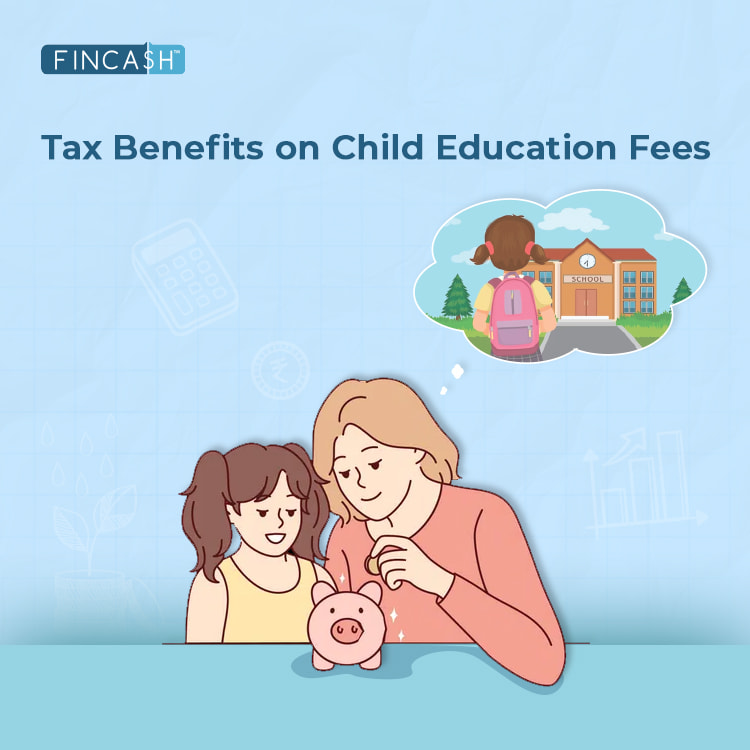
To mitigate this strain and foster literacy, the government extends a tax Deduction for Tuition Fees paid on behalf of children. This tax benefit encompasses children's education allowance, hostel expenditure allowance, and deductions for tuition fees. This article helps you understand the tax advantages available for children's education, outlining eligibility criteria and the process for claiming them.
Exemptions for Children's Education and Hostel Expenditure
Salaried taxpayers in India are eligible for the following exemptions:
Children's Education Allowance: ₹100 per month per child, with a maximum allowance for two children.
Hostel Expenditure Allowance: ₹300 per month per child, also capped at a maximum of 2 children. (Note: These exemptions apply only if the expenses are incurred within India, as stipulated by Section 10(14) of the income tax Act.)
Deduction for Tuition Fees under Section 80C
Under Section 80C, parents are entitled to claim a deduction for the amount paid as tuition fees to a university, college, school, or any educational institution. However, other fee components, such as development fees and transport fees, are not eligible for this deduction. In a given financial year, individuals can avail of a maximum deduction of ₹1.5 lakh for payments made towards tuition fees. This deduction can be claimed alongside deductions for expenses like:
- insurance
- Provident fund contributions
- Pension contributions
- Other eligible items
Talk to our investment specialist
Eligibility for Tuition Fees Deduction under Section 80C
When talking about tuition fees, only payments made for the full-time education of the child qualify as tuition fees. However, certain payments are not considered tuition fees, such as development fees, donations or charitable contributions, fees for private coaching, and other miscellaneous expenses like hostel charges, mess fees, library fees, or similar payments.
Individuals paying tuition fees for the education of their children can claim a tax deduction under Section 80C, provided they meet certain conditions outlined below:
Eligible Applicants: This deduction is available exclusively to parents. However, fees paid for the education of an adopted child also qualify for deduction.
Number of Children: Each parent can claim a deduction of up to ₹1.5 lakh for a maximum of 2 children individually. Consequently, if both parents are taxpayers, they can collectively claim deductions for up to 4 children.
Maximum Limit: The maximum deduction allowed is ₹1.5 lakh per financial year across Sections 80C, 80CCC, and 80CCD for a taxpayer.
Maximum Age: There is no upper age limit for the child to claim this deduction.
Educational Institution: The institution must be located within India and can include universities, colleges, schools, or any other recognised educational establishments.
Mode of Deduction: The deduction is applicable only on actual payments and not on a payable Basis. For example, if a parent pays the fee in April 2024 for the quarter ending March 2024, the fee paid will be eligible for deduction in the financial year 2024-25.
Categories of Fees Eligible for Reimbursement under Section 10(14)
The following types of fees are deemed eligible for reimbursement:
- Tuition fees
- Admission fees
- Special fees levied for disciplines such as agriculture, electronics, music, or any other subject
- Fees associated with practical work conducted under the program of work experience
- Fees paid for the utilisation of any appliances or aids
Categories of Fees that are Not Eligible for Reimbursement under Section 10(14)
The following expenses are not considered as part of tuition fees:
- One-time school admission charges
- Annual charges
- Transportation costs
- Charges for extra classes
- Fees for curricular activities
- Charges for smart classes
- Costs for sports and activities classes
- Expenses for coaching or private tuition
- Hostel fees
- Mess charges
- Boarding fees
- Library fees
- Stationery expenses
- Excursion fees
- School/college donations
- Charges for school/college development work
- Late school payment fees
- Readmission fees
Please note that this list is not complete.
Additionally, there are other exclusions where, despite being considered as tuition fees, expenses cannot be claimed for deduction under Section 80C. These exclusions include:
Part-time Courses: The deduction is not applicable for payments made towards part-time courses.
Family Members' Fees: Payments made towards school fees for oneself, spouse, siblings, parents, or other relatives do not qualify for this deduction.
Foreign University Fees: Fees paid to a foreign university outside India are not eligible for this deduction.
Claiming Tax Exemption for Children's Education Allowance and Tuition Fee Deductions
Jotted down below are some points to be noted to claim tax exemption for children's education allowance and tuition fee deductions:
For Salaried Individuals
Submission to Employer: Salaried individuals should provide the fee Receipt issued by the educational institution to their employer by the end of the year. This is typically done during the submission of investment proofs.
Declaration in Form 12BB: Additionally, they must declare these expenses in Form 12BB, which employers often use to capture details of various deductions and allowances.
For Non-Salaried Individuals
Claim under Section 80C: Non-salaried individuals can claim the tuition fee deduction under Section 80C in the VI-A schedule while filing their Income Tax Return (ITR).
No Submission Required: Unlike salaried individuals, non-salaried taxpayers are not obliged to submit bills or receipts while filing their ITR. However, retaining these receipts as evidence to support their claims is advisable.
You must know that children's education allowance and tuition fees are different deductions and can be claimed separately, each subject to its respective limits and conditions as outlined in the tax regulations.
Criteria for Eligibility of School or Institution for Your Child's Education
The school or institution where your child is enrolled must meet certain eligibility criteria. It should be recognised by the Central Government, State Government, or Union Territory (UT) Government or accredited by any University or a recognised educational authority with jurisdiction over the area where the institution is located. These conditions also apply to children enrolled in the two classes preceding Class 1: Nursery, LKG, and UKG.
Children's Educational Allowance for Central Government Employees
The Children's Education Allowance is provided to Central Government employees, including citizens of Bhutan and Nepal employed by the Government of India, for the education of their children studying at their native place. However, a certificate from the Indian Mission in the respective country is required to confirm the recognition of the educational institution by the educational authority having jurisdiction over the area where the institution is located.
Conclusion
Children's Education Allowance is a vital support mechanism for parents, facilitating their children's educational journey. Despite the complexities surrounding eligibility and reimbursement, CEA remains a significant resource in ensuring that every child has the opportunity to thrive academically, regardless of economic constraints.
Frequently Asked Questions
1. Can I claim the children's education deduction if I have adopted a child?
A: Yes, the adopted child's school fees are also eligible for deduction.
2. What constitutes tuition fees under Section 80C?
A: For expenses incurred on the tuition fees of up to 2 children, a taxpayer can avail a maximum deduction of ₹1.5 lakh.
3. Is there a restriction on the age for claiming children's education allowance?
A: No age limit is specified for claiming children's education allowance under the Income Tax Act. Nevertheless, it's important to note that the Children Education Allowance Scheme (CEA), designed for Central Government employees, does specify an age limit. It's essential to understand that this scheme is different from tax-related provisions. The Income Tax Act has established separate criteria for providing tax benefits.
4. Is it possible to claim Children's Education Allowance (CEA) twice for the same class?
A: CEA eligibility does not depend upon a child's performance in their class. Even in the event of a failure in a specific class, CEA remains permissible. However, CEA cannot be claimed if the child enrols in the same class at another school after successfully passing or if the child leaves the school midway through the session.
5. Is there an age limit for reimbursement of the allowance for children attending nursery classes?
A: No minimum age limit exists for claiming CEA reimbursement, even for play school fees, for children enrolled in nursery classes. However, there is a maximum age limit set at 20 years for typically developing children and 22 years for children with physical challenges or special needs.
All efforts have been made to ensure the information provided here is accurate. However, no guarantees are made regarding correctness of data. Please verify with scheme information document before making any investment.
You Might Also Like
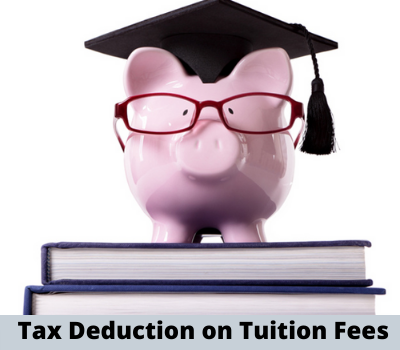
Avail Tax Benefits On Tuition Fees Under Section 80c Of It Act
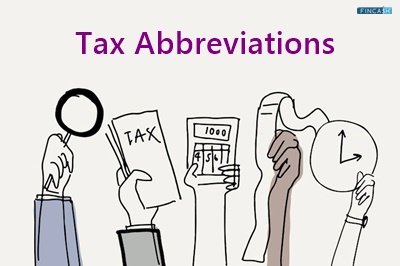
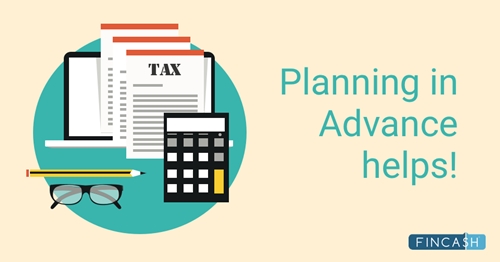
Income Tax Allowances And Deductions For Salaried Individuals
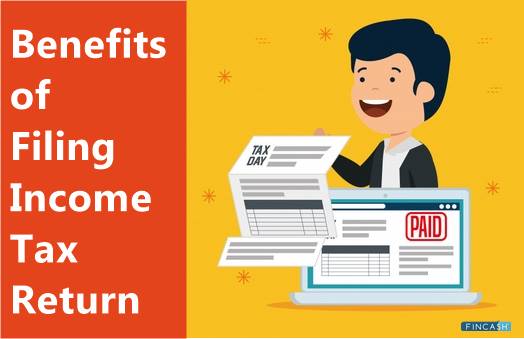

How To Get Maximum Tax Benefits During Stock Market Slowdown?
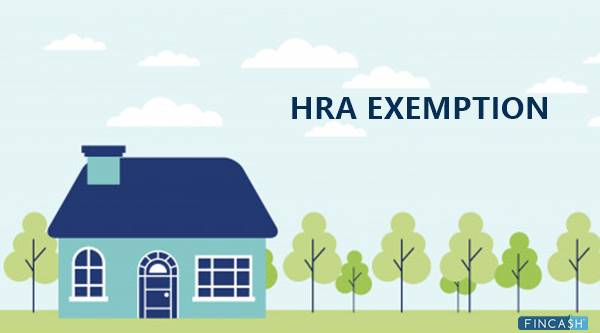
House Rent Allowance (hra)- Exemption Rules And Tax Deductions


Best Debt Mutual Funds In India For 2026 | Top Funds By Tenure & Tax Benefits




